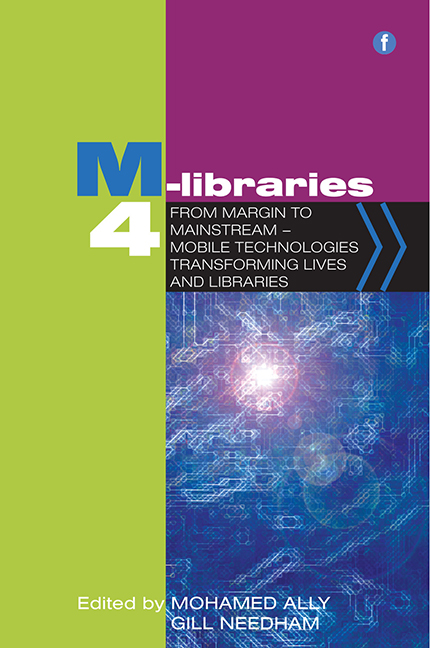3 - Mobilizing academic content online: challenges and rewards
Published online by Cambridge University Press: 10 September 2022
Summary
Introduction
The MACON (Mobilising Academic Content Online) project aimed to address the challenges involved in delivering quality academic content to mobile devices in a seamless and user-friendly manner. The project worked with EBSCO, a major content and systems provider, in order to prototype a mobile-friendly resource-discovery interface that will discover and expose quality academic content from both third-party and local collections. The project also addressed a strategic priority to present a flexible and integrated view of quality content, independent of ownership and format, to help to improve the efficiency and effectiveness of the Open University Library's systems. The MACON project was part of the JISC Mobile Infrastructure for Libraries programme.
Project context and background
The Open University (OU) is the biggest university in the UK, with more than 250,000 students. It is a distance learning university, so very few students ever visit the library building in person. Only our 1200 or so full-time research students are based on campus. Around 70% of OU students are working while studying, so their study time is tightly squeezed between work and family life. Up to 44% of our UK student population start undergraduate study without the entry qualifications they would need at a conventional university, and others start study with us after a long break from formal education. For these reasons OU Library services are focused on off-campus access to e-resources and support.
OU Library Services does not offer postal loans or document delivery to undergraduate students unless they are housebound, so easy access to e-resources is essential for them. The Helpdesk services can be contacted by phone, e-mail or webchat and are open seven days a week. The Library also provides online training and skills development.
The OU has a particular interest in mobile learner support as part of the institution-wide commitment to mobile learning. In August 2012 around 35,844 unique OU students accessed the university's StudentHome online via mobile phones, which was around 19.5% of all student visits. For OU students, the advantage of mobile access to materials is the flexibility that it offers. If you unexpectedly have a little spare time your mobile phone can help you to use it productively. If you cannot access the family computer because your children are doing their homework, your smartphone provides an alternative.
- Type
- Chapter
- Information
- M-Libraries 4From Margin to Mainstream - Mobile Technologies Transforming Lives and Libraries, pp. 25 - 36Publisher: FacetPrint publication year: 2014

